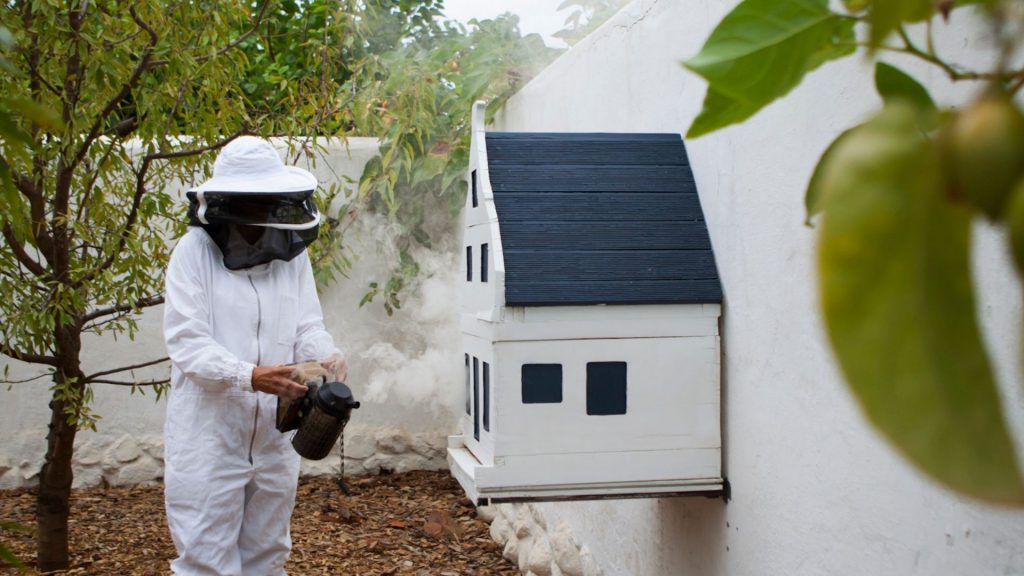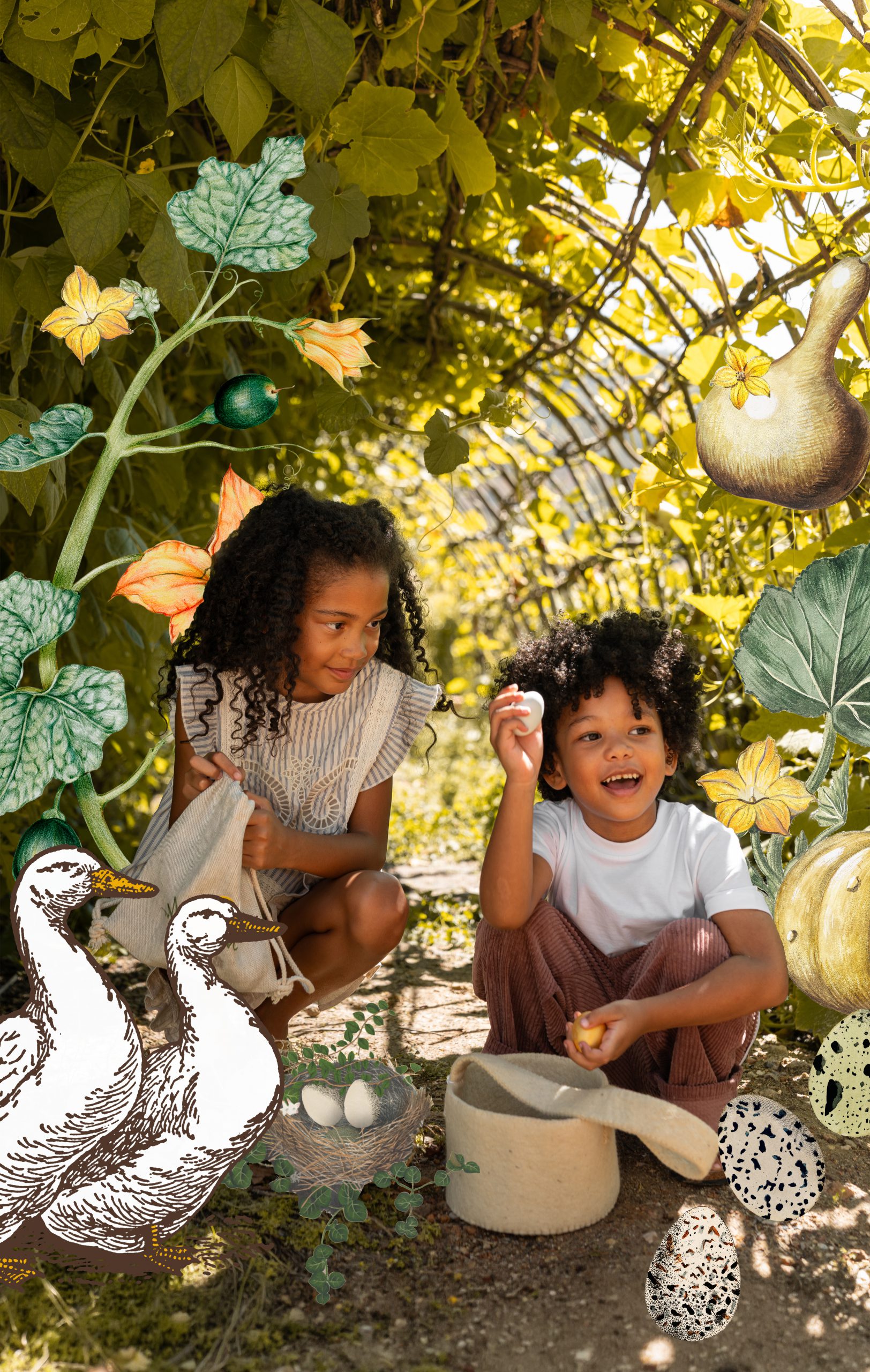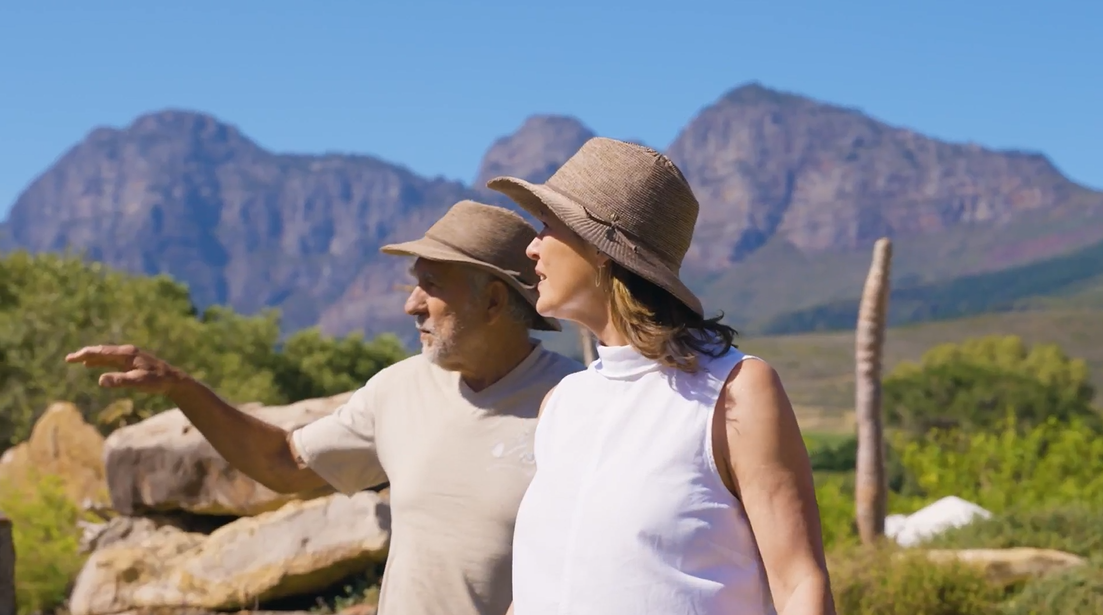How to create an ideal bee habitat in your garden
May 20th, 2021In celebration of World Bee Day, Arné Stander, entomologist at Babylonstoren, shares some tips to create an ideal bee habitat at home.
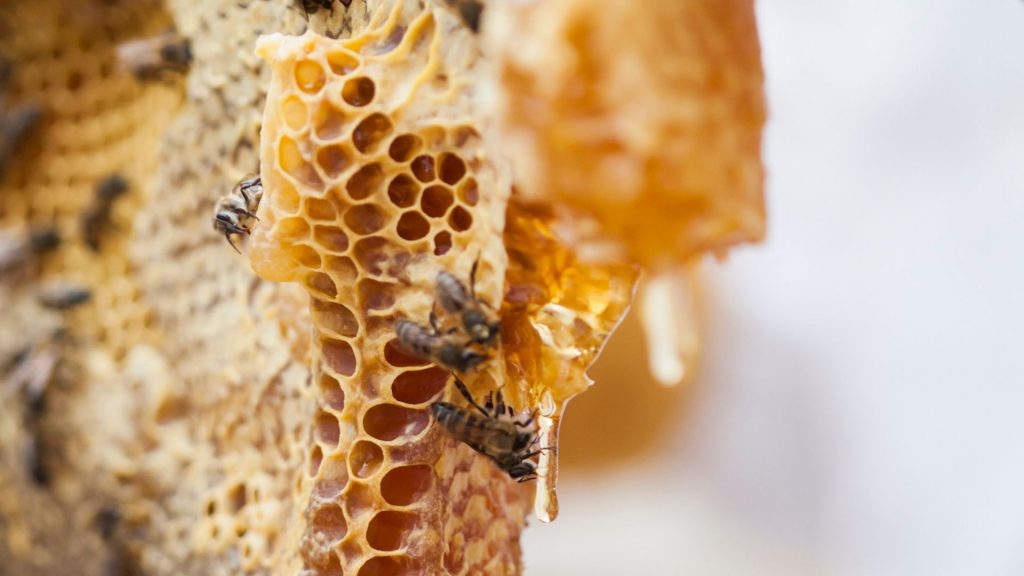
About World Bee Day
On 20 May we celebrate the existence and importance of bees on World Bee Day. More than a third of the food on our plates depends on bee pollination, so we need to treat these hard-working insects well! With the arrival of spring in the northern hemisphere, bees are now buzzing with action, while we are busy preparing for winter’s arrival.
Our beekeeper Arné has already prepared the hives for the cooler months when the colonies are smaller and less active, requiring smaller hives to maintain cosy temperatures. During the cooler months, there are also fewer plants in bloom to provide much-needed pollen and nectar that bees need to produce their golden honey. For this reason, we don’t harvest any of the honey from the hives on the farm during winter, explains Arné.
You don’t need to keep hives or have a big garden to create an environment for bees to thrive. Any garden, no matter how big or small, can be a haven for the industrious little pollinators on which so much of our food sources depend. Look at your garden through a bee’s lens to create the ideal environment for them to flourish.
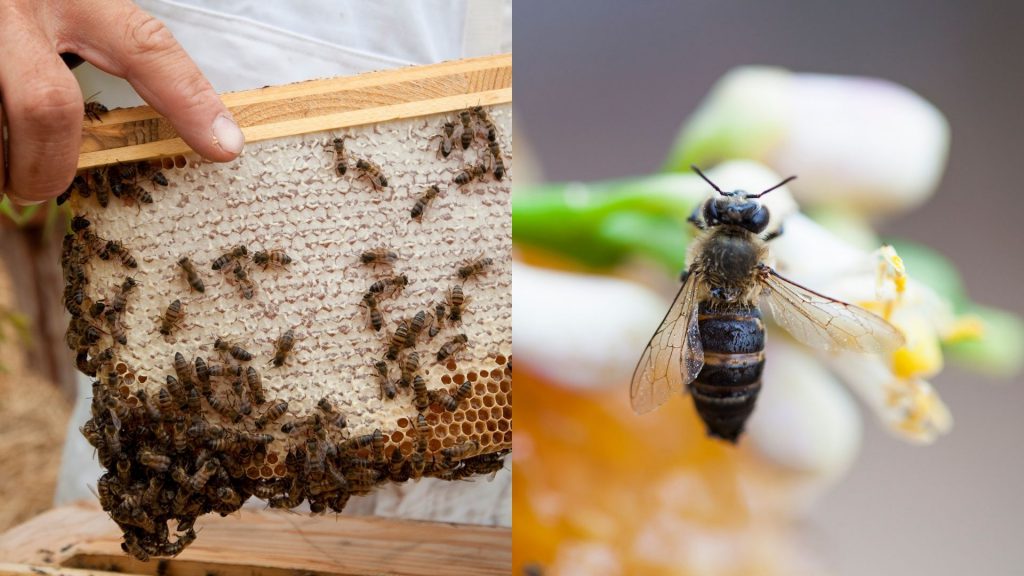
Food
As flowers are limited in winter, you can help bees by planting a variety of plants in your garden, Arné says. “They are especially fond of yellow, purple and blue flowers, although they struggle to see red. Herbs are a wonderful addition for both bees and your kitchen garden; bees love lavender, rosemary and perennial basil which replenishes its nectar daily, so bees can return to the same plant day after day to collect nectar.”
And here’s some great news – keeping weeds in your garden is also not a bad idea, especially when they are in bloom! “When other food supplies are not easily available, bees rely on plants like Cape Sorrel (Siering in Afrikaans) and Dandelions in flower for pollen.”
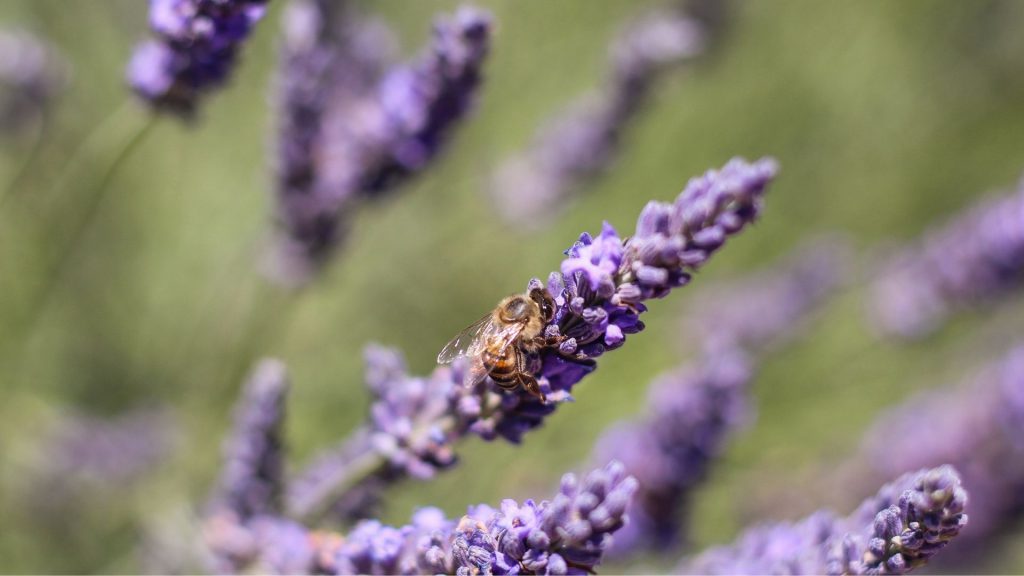
Water
Bees also need a regular supply of water throughout the year. “Creating a water feature like a bird bath is a wonderful way to support bee colonies,” Arné suggests. “Prevent bees from drowning by placing marbles or small rocks in the water for them to rest on while they drink.”
Care
The global bee population is under threat due to various reasons. “One of the culprits is pesticides,” Arné explains. “When gardening at home, try to use bee-friendly insecticides. Simply check the label before you buy the product.”
